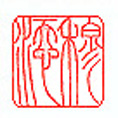— go back
— go back to list of extracts
— skip to next extract

The labourers had stopped at that point, and covered the vat with its lid of light wood, to prevent any contamination from leaves or dust or rainwater. The following morning, the gaffer had climbed a wooden ladder to check that all was well, after the lid had been lifted by its ropes, and then the vat had been filled in the usual way. But when the vat was full, hardly any oil was flowing. This presented a big snag. After various attempts, the only way to diagnose the stoppage proved to be to remove all the olives by sending men up to load them back onto the lift, having reversed the gear to bring them down again. It was when most of the vat had been emptied that they found the body of Ctesias at the very bottom; it was he and his clothing which had prevented the flow of oil.
I climbed the ladder and looked down. The oil was clear enough for me to see the dead man’s features. I shivered, thinking of what must have been a horrible death by suffocation, by crushing, by drowning in the oil, or some combination of these. Unless, of course, he was already dead when the vat was filled ...
I came down, and asked the gaffer to tell off some of his fellow-workers to guard the vat. ‘Soon,’ I said, ‘we shall return to deal with the body, before you drain off the contaminated oil;’ and to Philippus and Samson, I added: ‘first, we must talk.’ At this point I noticed my student Philodemus, who must have followed us from the inn. I frowned.
‘You shouldn’t be here,’ I said, ‘but now that you are, come with us.’
We walked a short distance to a caf?, and took a table in the shade of an old fig-tree. When the wine was served, it was accompanied by miniature globes of dry goat cheese, known as ‘turds’. Though I loved turds, I pushed the platter of cheese away from me, not having the stomach for food at that point.
(3/7)